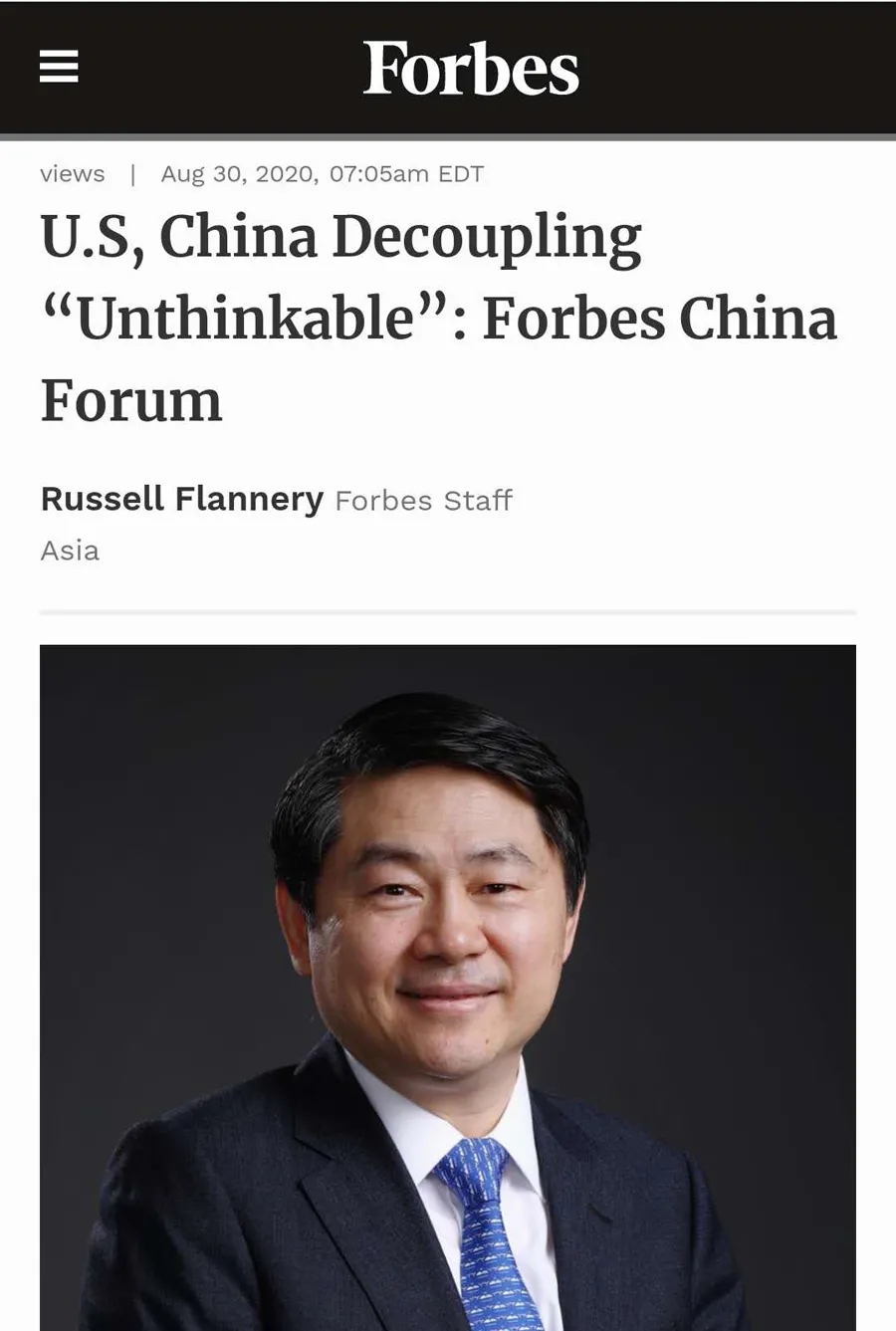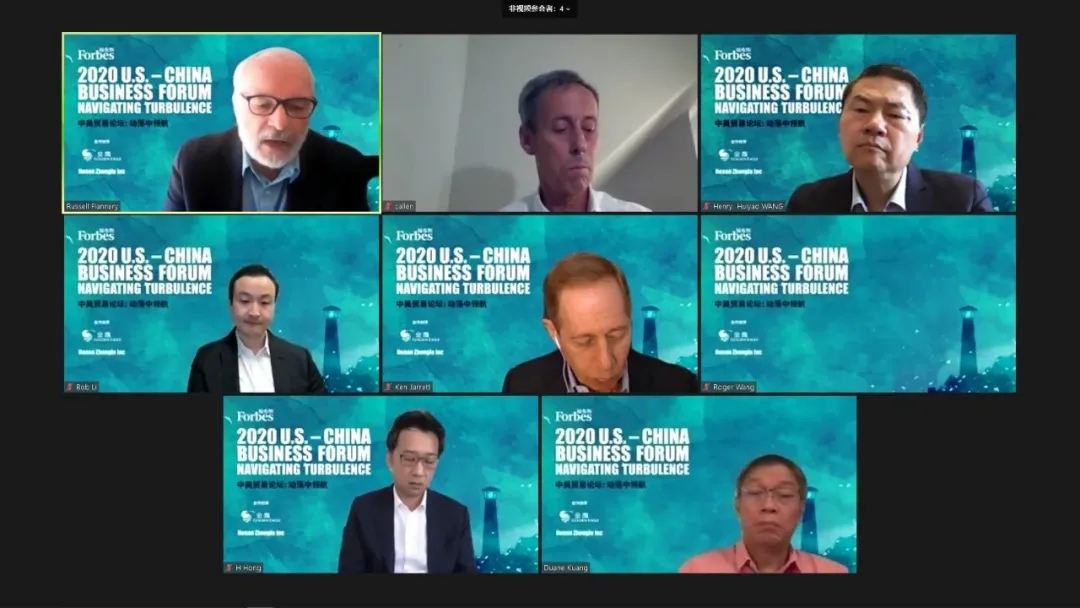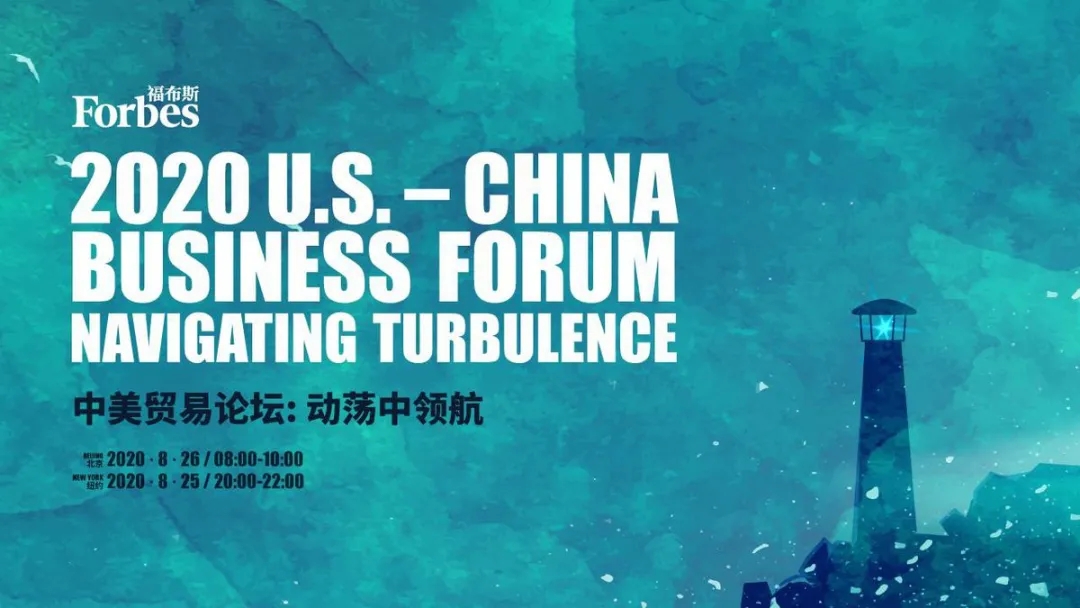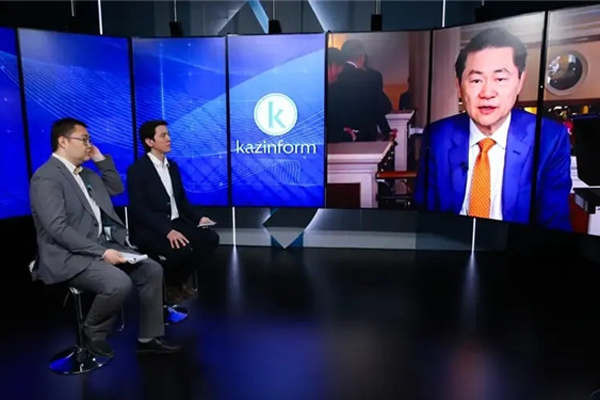U.S, China Decoupling “Unthinkable”: Forbes China Forum
Forbes | September 02 , 2020
“Business is probably the only bond that still keeps us talking together, and that’s very vital”, says Wang Huiyao, president of Beijing-headquartered think-tank Center for China and Globalization(CCG). — WANG HUIYAO
Vast business ties between the U.S. and China and the overall success of American businesses in the mainland make decoupling of the two economies “impossible,” the head of a top Chinese think-tank said at the U.S.-China Business Forum organized by Forbes China on Wednesday.
“In the end, we are not in the Cold War era or the Soviet Union days,” said Wang Huiyao, president and founder of the Center for China and Globalization(CCG). “I don’t think the U.S. and China can be totally decoupled, which is impossible, unthinkable,” he said. “It has got to be intertwined.”


“If you look at the history of China’s opening up for the last 41 years, it is basically a history of walking up to the West, opening up to the West,” and maintaining good ties, Wang said. However, he added, “China has changed profoundly. If people travel to China frequently, you can see China has changed beyond recognition. And that is a fact that is there.”
Improved communications are needed to help stabilize relations between the two countries, Wang said. “The narrative is a huge problem right now,” he said. On the U.S. side, he suggested that “the benefit of doing business with China should be more emphasized.” China is also lacking “a very good communication package, or even a narrative, too,“ he said. If China can’t improve its own communications, “that’s really going to cause a lot of problems,” Wang said.
Possibilities where the two sides could work together, he suggested, are the Phase One talks launched under President Trump, and an agreement on a Trans-Pacific Partnership that was started under President Obama but abandoned by President Trump on the grounds it favored special interests. Trump now favors an Economic Prosperity Network that would exclude China.
The TPP pact was signed in in 2018, between Australia, Brunei, Canada, Chile, Japan, Malaysia, Mexico, New Zealand, Peru, Singapore, and Vietnam. China, facing trade pressure from the U.S., has recently expressed a willingness to enter into talks to enter the agreement, and the participation of the two could “set a huge platform for talks, settle differences and bring high standards.”
“(It’s) really important that we actually talk to each other,” Wang said. “I’m still cautiously optimistic,” Wang said. “We are living in a prosperous 21st century. How can we go back to 19th century (or) the 20th century primitive days?”
Other forum participants included Craig Allen, president of the U.S.-China Business Council; Cho Tak Wong, chairman of Fuyao Glass Industry; IMAX CEO Richard Gelfond; Hao Hong, research head, BOCOM International, a subsidiary of the Bank of Communications; Ken Jarrett, a senior advisor at Albright Stonebridge Group; Duane Kuang, member of the 2020 Forbes Midas List and founding managing partner of Qiming Venture Partners; Dr. Bob Li, Physician Ambassador to China and Asia-Pacific, Memorial Sloan Kettering Cancer Center, George Wang, vice chairman of the Zhonglu Group; and Roger Wang, chairman of the Golden Eagle International Group and chairman of the Committee of 100.
From Forbes,2020-08-30
Recommended Articles
-

KNA | Global trade, U.S.-China tensions, AI regulation
-
[Research Features] China’s role in a sustainable post-pandemic globalization
-
Wang Huiyao: China is not a threat to the international community - the world can benefit through China’s development
-
Wang Huiyao in dialogue with Lawrence H. Summers
-
CNBC | Trump's shake-up of the old world order sends shockwaves through Europe